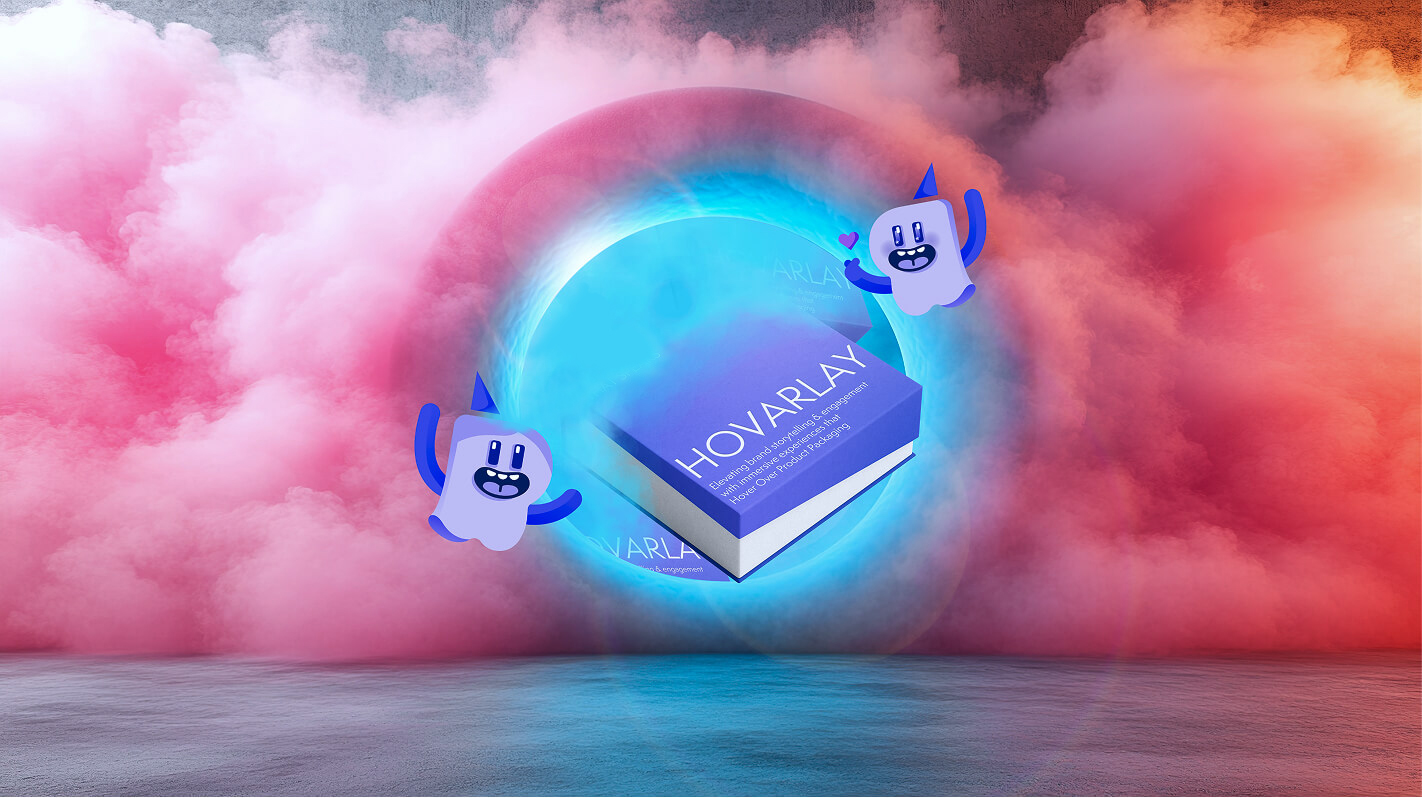On this page
Transforming Consumer Experiences with Interactive Product Packaging
- What Is Interactive Product Packaging?
- The Key Elements of Interactive Product Packaging
- 1. Augmented Reality Integration
- 2. Personalised Experiences
- 3. Educational Content
- Benefits of Interactive Product Packaging
- 1. Enhanced Customer Engagement
- 2. Improved Brand Loyalty
- 3. Amplified Social Sharing
- 4. Measurable Analytics
- Industries Leveraging Interactive Product Packaging
- 1. Food and Beverage
- 2. Beauty and Skincare
- 3. Retail and E-commerce
- 4. Entertainment and Gaming
- Hoverlay: Revolutionising Interactive Product Packaging
- Hoverlay’s Features
- The Future of Interactive Product Packaging
- Unlock the Power of Interactive Product Packaging with Hoverlay

Start sharing your brand story with HOVARLAY
In a rapidly evolving market, product packaging is no longer just a functional component; it’s a gateway to immersive consumer experiences. Interactive product packaging is redefining how brands connect with their audiences, creating memorable interactions that go beyond aesthetics. By integrating technologies such as augmented reality (AR), packaging has become a powerful tool for storytelling, engagement, and brand loyalty.
Let’s explore how interactive packaging is reshaping industries and why businesses should embrace this transformative approach.
What Is Interactive Product Packaging?
Interactive product packaging refers to packaging designs that use digital or physical elements to engage consumers in active participation. These interactions can be triggered through:
- Smartphones with QR codes or AR-enabled apps.
- NFC (Near Field Communication) for instant content access.
- Customised triggers, such as app-driven animations or embedded sensors.
From revealing hidden product features to providing gamified experiences, this packaging method enriches customer interactions and boosts brand engagement.
The Key Elements of Interactive Product Packaging
1. Augmented Reality Integration
One of the most popular forms of interactive packaging involves AR, which overlays digital content onto the physical world.
- Example: A cereal box that displays a virtual game when scanned with a smartphone.
- Impact: Enhances consumer interaction and adds entertainment value.
2. Personalised Experiences
Interactive packaging can be customised based on individual preferences or geographic data.
- Example: A skincare product that provides virtual skin analysis through packaging.
- Impact: Establishes a deeper connection with consumers.
3. Educational Content
Brands can use packaging to share valuable insights about their products.
- Example: A wine bottle offering AR-based pairing suggestions and tasting notes.
- Impact: Increases product knowledge and encourages informed purchasing decisions.
Benefits of Interactive Product Packaging
1. Enhanced Customer Engagement
Interactive packaging captivates attention by transforming the customer experience into a journey of discovery and fun.
- Gamified elements encourage repeat interactions.
- Digital storytelling adds emotional depth to products.
2. Improved Brand Loyalty
By creating unique experiences, brands can foster stronger relationships with consumers.
- Personalisation ensures the experience feels relevant and valuable.
- Transparent storytelling builds trust.
3. Amplified Social Sharing
Interactive packaging is inherently shareable. Customers are more likely to post unique packaging experiences on social media, creating organic brand awareness.
- Statistic: 78% of consumers are more likely to recommend a brand offering unique experiences.
4. Measurable Analytics
Interactive features generate valuable data about customer preferences and behaviours, helping brands refine their strategies.
Industries Leveraging Interactive Product Packaging
1. Food and Beverage
AR-enabled labels provide information about sourcing, sustainability, and pairing tips.
- Example: An organic juice brand displaying an AR tour of its farms.
2. Beauty and Skincare
Interactive packaging offers tutorials, product recommendations, or virtual try-ons.
- Example: A makeup brand demonstrating application techniques through AR overlays.
3. Retail and E-commerce
Interactive packaging bridges the gap between online and offline shopping experiences.
- Example: Packaging that reveals hidden discounts or special offers.
4. Entertainment and Gaming
Gamified packaging engages younger audiences, making it an effective strategy for toy and game manufacturers.
Hoverlay: Revolutionising Interactive Product Packaging
Hoverlay is a leader in creating immersive and engaging packaging solutions for brands. Through its advanced AR platform, Hoverlay enables businesses to integrate digital storytelling and interactive elements seamlessly.
Hoverlay’s Features
- AR-Enabled Packaging: Transform packaging into a dynamic storytelling platform.
- Customisable Experiences: Design content tailored to your audience’s preferences.
- Real-Time Analytics: Track consumer interactions and optimise campaigns accordingly.
- Seamless Integration: Compatible with smartphones and other digital devices, ensuring ease of use.
The Future of Interactive Product Packaging
The integration of advanced technologies like AR, AI, and blockchain will further elevate interactive packaging, offering:
- Hyper-Personalisation: Tailored experiences based on real-time consumer data.
- Blockchain Transparency: Certifying authenticity and sustainability claims.
- Immersive AI: Providing intelligent virtual assistants through packaging.
As consumer expectations continue to rise, businesses must leverage these advancements to remain competitive.
Unlock the Power of Interactive Product Packaging with Hoverlay
Ready to transform your packaging into a dynamic brand engagement tool? Hoverlay offers cutting-edge solutions tailored to your unique business needs.
Visit Hoverlay today and discover how interactive product packaging can elevate your brand and captivate your audience.








